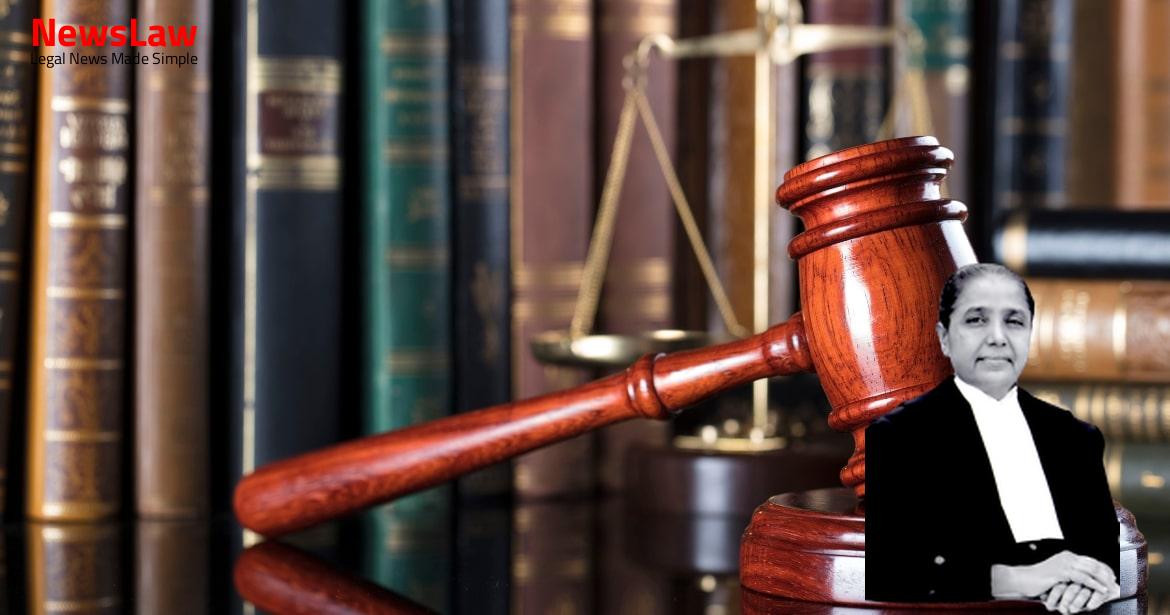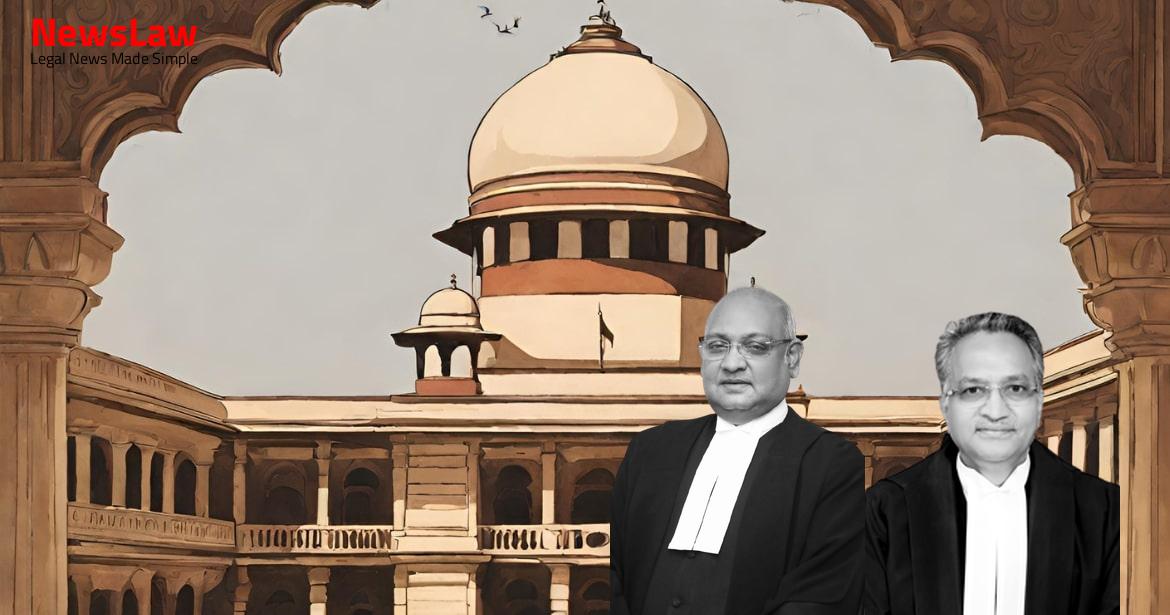In a recent judgment by the Supreme Court of India, the court delved into the intricacies of interest calculation in an arbitration case. The case involved a dispute between the parties, where the petitioner sought further interest based on the arbitrator’s award. The court’s analysis shed light on the distinction between pre-award and post-award interest periods, emphasizing the limitations on awarding compound interest. Dive into the details of this significant legal ruling!
Facts
- The court rule under Section 14 read with Section 17 of the Indian Arbitration Act, 1940 was applied for the decree.
- Interest was awarded in two periods: (i) from the date of completion of work in the award till the date of payment or the court decree, whichever is earlier.
- The High Court adopted the same view in the judgment and order dated 06.09.2013.
- The decree ordered a total amount of Rs.21,56,745 to be paid by Union of India, with 12% interest per annum up to the date of the award and 15% interest per annum from the date of award till realization of the decreetal amount.
- The petitioner moved for execution seeking further interest which was denied by the Principal Senior Civil Judge, Khambhalia.
- Interest upon interest was not granted as the Arbitrator did not explicitly award it.
- The relevant portion of the award specified simple interest of 12% per annum from the completion of work till the award date, and 15% from the award date to payment or court decree date.
- Petitioner challenged the High Court and Civil Judge’s orders.
- The Arbitrator awarded simple interest, not compound interest.
- Petitioner entitled to simple interest at 12% for pre-award period and 15% for post-award period.
Also Read: Currency Conversion in Arbitral Awards: The Supreme Court Ruling on Foreign Exchange Rates
Issue
- Issue at hand is whether interest is payable on interest
- Determining if the 15% interest per annum awarded is on the principal sum award or on the sum that includes the 12% per annum interest for the pre-award period
Also Read: Delhi Municipal Corporation Act Nomination Dispute
Arguments
- Ms. Mendiratta argued that the 12% interest per annum awarded for the pre-award period is considered part of the principal sum.
- She stated that this interest has lost its character as separate interest and should not be treated separately.
- The counsel contended that the interest should be considered integral to the principal amount rather than a separate entity.
- Ms. Aishwarya Bhati, learned Additional Solicitor General, represented the respondent.
- She argued that arbitrators have the power to award interest on interest or compound interest when necessary.
- The award or court order must specifically grant the interest to the claimant for it to be paid.
- 15% interest per annum for the post-award period is calculated on both the principal sum and the 12% interest already provided.
- There is no dispute about the arbitrator’s authority to award such interest.
Also Read: Judicial Review in Slum Rehabilitation: Supreme Court’s Landmark Ruling
Analysis
- In the analysis section of the judgment, it is determined whether compound interest or interest upon interest has been awarded in the case.
- The judgment distinguishes between pre-award and post-award periods for the calculation of interest.
- The arbitrator granted interest for two separate periods on the principal sum adjudged without including interest for the first period in the subsequent period.
- The judgment emphasizes that courts typically do not grant interest on interest unless specifically provided for by statute or contract terms.
- The absence of statutory or contractual provisions for compound interest or interest upon interest limits the court’s power to award such interest.
- The award under the Arbitration Act is treated as a decree and is subject to the Code of Civil Procedure for interest calculations and execution.
- The Interest Act of 1978 prohibits courts from awarding interest on interest, limiting interest payment to the principal sum adjudged.
- The analysis underscores the importance of interpreting the award and decree to ensure that interest calculations are based on the principal sum adjudged.
- Section 34 of the CPC allows the court to order interest on the principal sum adjudged for payment of money.
- The court has the discretion to determine a reasonable rate for the interest to be paid.
- Section 29 of the Act permits the court to include interest in the decree based on what is deemed reasonable according to the award.
- This means that when drawing the decree, the court can order payment of interest on the principal sum as determined by the award.
- Courts are not entitled to award interest upon interest unless specifically provided under a statute or contract terms
- Arbitrators have the power to grant interest akin to Section 34 CPC, but interest is only permissible on the claim made, not on interest awarded
- Interest awarded can form part of damages or compensation for delayed payment and become part of the principal amount
- Arbitrators can grant interest on interest in certain circumstances where it is considered as part of the compensation awarded
- Compound interest can be awarded only if there is a specific provision under the statute or contract for compounding interest
- Courts or tribunals do not have the general discretion to award compound interest or interest upon interest
- Post-award interest includes pre-award interest when the phrase ‘sum directed to be paid by award’ is used
- A distinction is made between Section 31(7) of the Arbitration and Conciliation Act and Section 34 CPC regarding the meaning of ‘sum’ or ‘principal sum adjudged’
- Interest, unless specified otherwise, refers to simple interest payable only on the principal amount, not on any accrued interest
- Discretionary jurisdiction under Article 136 of the Constitution of India was not deemed appropriate to interfere with the opinion of the two courts below.
- No material was presented to show that the contract contained provisions related to the disputed issue.
Decision
- The Special Leave Petition filed by the Petitioner was dismissed.
Case Title: M/S. D. KHOSLA AND COMPANY Vs. THE UNION OF INDIA (2024 INSC 587)
Case Number: SLP(C) No.-000812-000812 – 2014



